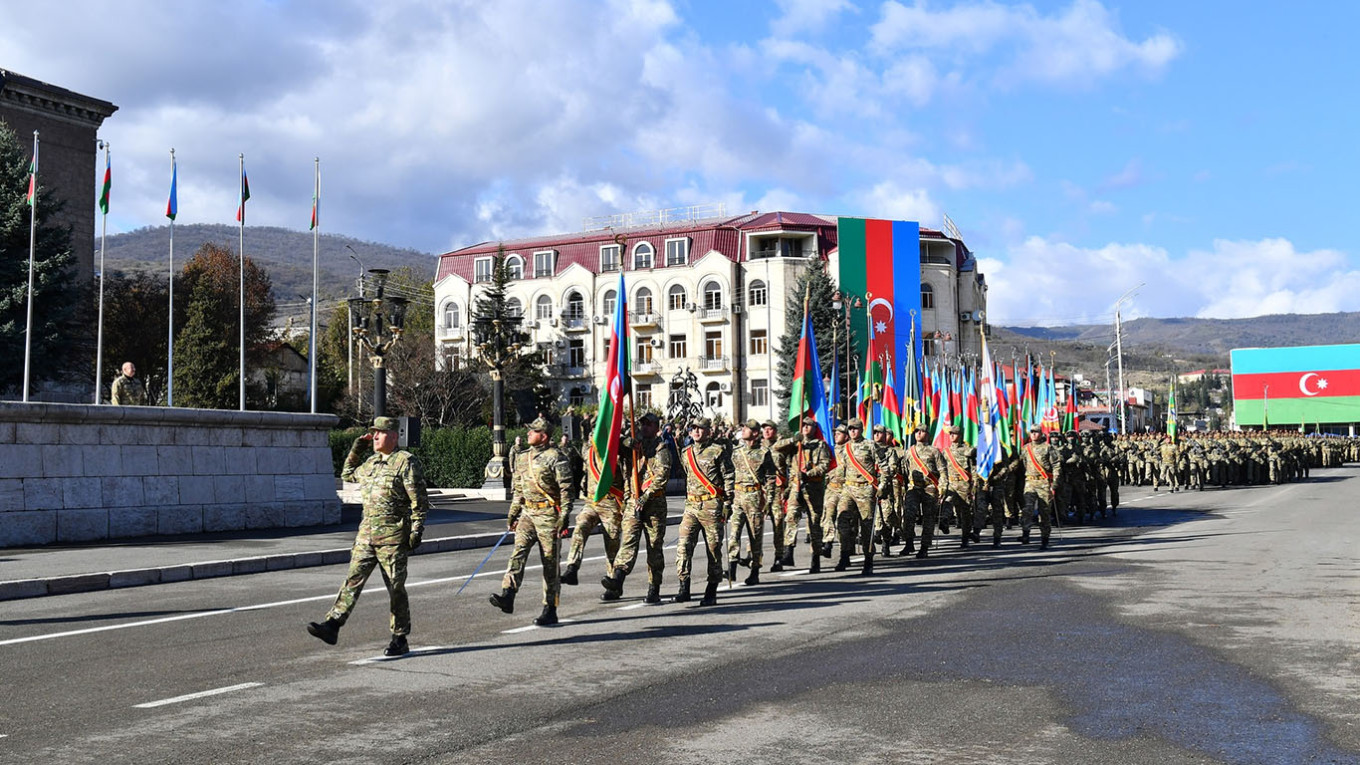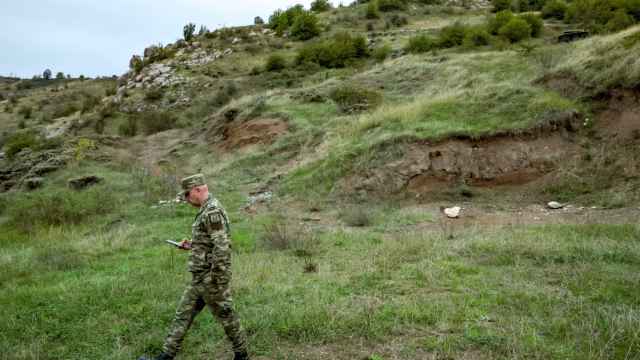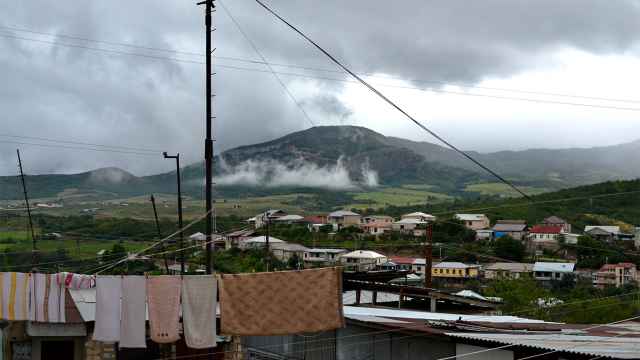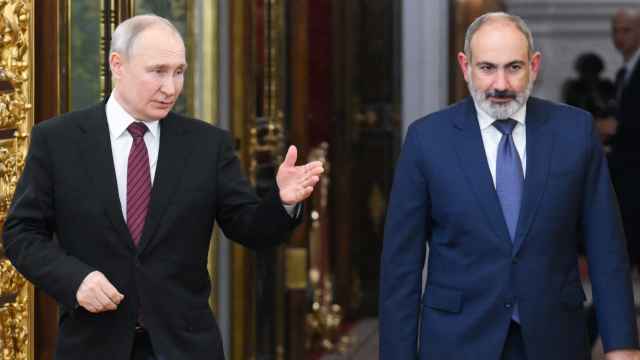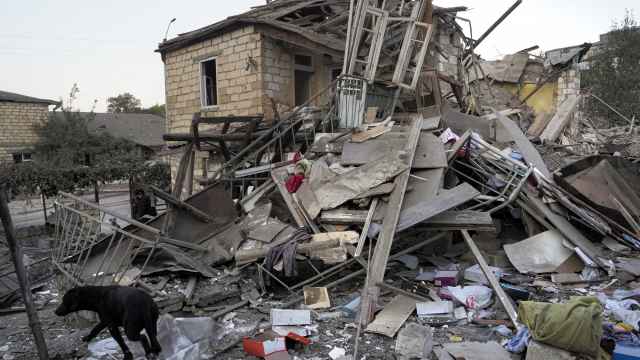In recent months, the small Armenian village of Margara has drawn a steady stream of Western diplomats and foreign journalists. It’s not the stork nests built on the houses or the vineyards against the backdrop of Mount Ararat that bring them here, but the border crossing between Armenia and Turkey, which was built during the Soviet era but never used.
Armenia has recently renovated the customs office and specialists have tested the bridge connecting the two neighbors. Yerevan and Baku still lack diplomatic relations, meaning all communication takes place through third-party nations.
This flurry of activity has fueled hopes that the Armenian-Turkish border will soon open, turning Margara into a key crossroads for the South Caucasus. But Turkish officials have made it clear that the reopening of the border depends on Armenia reaching an agreement with Turkey’s strategic ally, Azerbaijan, with which Armenia has been locked in conflict for more than three decades.
In mid-March, Armenia and Azerbaijan announced they had finalized a peace treaty, raising hopes of an end to their dispute. However, subsequent conditions announced by Azerbaijan have cast doubt on whether it will be signed.
The conflict between the two South Caucasus nations dates back to the final years of the Soviet Union, when Armenia and Azerbaijan clashed over the disputed region of Nagorno-Karabakh, which had an Armenian majority but was part of Azerbaijan. Since then, they have fought two wars: the most recent, in 2020, ending in Azerbaijan’s victory.
As a result, Baku reclaimed most of the contested territory. In 2023, following the exodus of all Armenians from Nagorno-Karabakh, the region’s status became nonnegotiable. Other particularly contentious issues, like border demarcation and transport links, have been siloed off into separate talks.
As a result, the current draft of the peace treaty focuses solely on establishing diplomatic relations — in other words, renouncing territorial claims, ceasing legal disputes, and withdrawing foreign peacekeeping missions. The document is so straightforward that, as one participant put it, when it becomes public, negotiators will have to explain why such a simple text took so long to finalize. It took the sides four years to come up with this draft.
One reason for the delay is that Yerevan sought to soften the consequences of its 2020 defeat. Armenian officials argued that reconciliation should be gradual, allowing time for trust between Armenians and Azerbaijanis to develop.
For Azerbaijan, this sounded like an attempt to buy time. Similar rhetoric from Yerevan accompanied failed negotiations in the past, and since its military victory Baku has refused to indulge this position. Any Armenian attempts to discuss the rights of Karabakh Armenians or involve additional mediators were also seen in Azerbaijan as stalling tactics that would only end in a new deadlock in talks and escalation on the front line. As one Western diplomat put it: “Baku will not let anyone steal its victory.”
Another reason is that there is little urgency for Azerbaijan. The most pressing issues in Baku’s relationship with Yerevan—control over Nagorno-Karabakh and strategic military positions along the border—have already been settled by force. With no immediate need for an agreement, Azerbaijan sees no downside to continuing to impose new conditions.
Baku’s latest demand is that Armenia amend its constitution to remove a reference to the country’s Declaration of Independence—a document that includes a call for unification with Nagorno-Karabakh. Yerevan has been obliged to make repeated concessions to Baku in recent years, but constitutional amendments could prove a step too far. Armenian officials have said that modifying the constitution likely requires a nationwide referendum that would be far from guaranteed to return a “yes” vote.
Although the Armenian authorities claim they are prepared to hold a referendum, it’s unclear whether Baku would then commit to signing anything. A former Armenian official even speculated that after changing the constitution, Azerbaijan might go on to demand an apology for any of the many violent episodes in the past thirty-five years of conflict. A foreign diplomat compared the referendum to Baku forcing every Armenian citizen to “do penitence” for Nagorno-Karabakh.
Yerevan, however, has few good options. Armenians are desperate to avoid war. In Armenian border villages, locals brick up the windows that face Azerbaijani military positions. The repeated fighting in recent years, as well as the loss of Nagorno-Karabakh, has left Armenians fearful of a new, even bigger conflict that could threaten not just their homes but the very existence of the Armenian state.
Meanwhile, Turkish officials insist that the peace treaty is also a necessary precondition for Armenia to be able to open its border with Turkey. Experts predict that direct trade with its Western neighbor could significantly boost Armenia’s economy. Beyond financial benefits, however, stronger ties with Turkey could help Armenia deepen its alignment with the European Union and reduce its dependence on Russia.
Since Russia’s full-scale invasion of Ukraine in 2022, Western capitals have actively supported reconciliation in the South Caucasus, with a particular focus on Turkey. And Turkish officials have stated their willingness to open the border with Armenia — provided they receive approval from Baku.
Such a step would not only allow Turkey to normalize relations with Armenia — the only neighbor with which it has a closed border — but also to expand Turkish influence in the South Caucasus, where it already enjoys close ties with Georgia and Azerbaijan. However, Ankara will not risk angering Baku — not just due to the personal ties between their leaders, but because Turkey depends on Azerbaijan’s energy resources.
While peace appears tantalizingly close, it will not remain like this forever. Indeed, the window for a deal may already be closing. Diplomatic progress in the region has benefited from Moscow’s fixation on Ukraine. But if the United States and Russia reach a deal to freeze the conflict, Moscow could find more time to focus on the South Caucasus. Russia has no interest in strengthening Turkey’s role, and it’s possible it could seek to sabotage reconciliation. Armenia, as the weakest link, remains highly vulnerable to Russian pressure—both military and economic.
If those advocating for peace in the South Caucasus want to act, the time is now. The key pieces are in place. If Baku and Yerevan wait too long, they may squander one of the best opportunities for a settlement they have ever had—a misstep that would have grave consequences for the entire region.
This article was originally published by the Carnegie Endowment for International Peace.
A Message from The Moscow Times:
Dear readers,
We are facing unprecedented challenges. Russia's Prosecutor General's Office has designated The Moscow Times as an "undesirable" organization, criminalizing our work and putting our staff at risk of prosecution. This follows our earlier unjust labeling as a "foreign agent."
These actions are direct attempts to silence independent journalism in Russia. The authorities claim our work "discredits the decisions of the Russian leadership." We see things differently: we strive to provide accurate, unbiased reporting on Russia.
We, the journalists of The Moscow Times, refuse to be silenced. But to continue our work, we need your help.
Your support, no matter how small, makes a world of difference. If you can, please support us monthly starting from just $2. It's quick to set up, and every contribution makes a significant impact.
By supporting The Moscow Times, you're defending open, independent journalism in the face of repression. Thank you for standing with us.
Remind me later.


